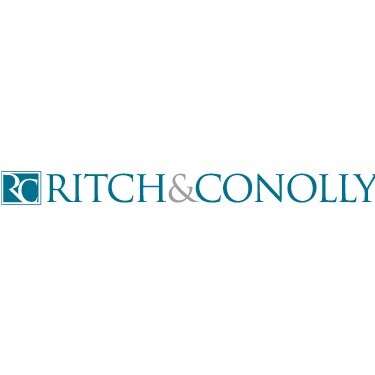Best Private Equity Lawyers in George Town
Share your needs with us, get contacted by law firms.
Free. Takes 2 min.
List of the best lawyers in George Town, Cayman Islands
About Private Equity Law in George Town, Cayman Islands
Private equity refers to investment funds, typically organized as limited partnerships, that buy and restructure companies that are not publicly traded. George Town, the capital of the Cayman Islands, is renowned as a leading global hub for private equity due to its favorable regulatory environment, tax neutrality, and robust legal framework. Many of the world's largest private equity funds are formed as Cayman funds, and local law firms, administrators, and financial institutions have deep expertise in supporting these structures. Investors and sponsors are drawn to George Town for its reputation, flexibility, and the efficiency of its legal and regulatory systems.
Why You May Need a Lawyer
Private equity transactions and fund formations are complex and subject to significant legal and regulatory scrutiny. You may need a lawyer in the Cayman Islands for many reasons, including:
- Setting up or structuring a private equity fund or vehicle
- Drafting or reviewing fund documentation, such as limited partnership agreements or offering memoranda
- Advising on regulatory compliance, such as anti-money laundering (AML) and economic substance requirements
- Negotiating acquisitions, due diligence, and related agreements
- Handling cross-border investments and restructuring deals
- Addressing investor rights, disputes, or exit strategies
- Ensuring proper corporate governance and fiduciary duties
- Assisting with fund dissolutions or wind-downs
A local legal advisor ensures compliance with Cayman law and helps navigate the intricacies of international private equity deals linked to George Town.
Local Laws Overview
Laws governing private equity in George Town are designed to balance investor protection with business flexibility. Key aspects include:
- Cayman Exempted Limited Partnership (ELP) Law: The ELP is the most common structure for private equity funds, offering flexibility and limited liability to investors (limited partners) while allowing sponsors (general partners) to manage the fund.
- Companies Act: Many funds and portfolio companies are registered as exempted companies under the Cayman Companies Act, which offers robust asset protection and privacy for shareholders.
- Regulatory Oversight: The Cayman Islands Monetary Authority (CIMA) regulates investment funds and ensures compliance with anti-money laundering, economic substance, and other regulations.
- International Obligations: The Cayman Islands adheres to global standards on transparency, including FATCA and the Common Reporting Standard (CRS), impacting fund operations and reporting.
- Economic Substance Requirements: Certain Cayman entities carrying out ‘relevant activities’ must demonstrate adequate economic presence in the Islands, which affects some private equity fund operations.
- Tax Neutrality: There are no direct taxes on income, capital gains, or profits, making Cayman an attractive location for fund formation.
Keeping up to date with changing regulations and international standards is essential for all private equity participants in George Town.
Frequently Asked Questions
What is the most common legal structure for private equity funds in the Cayman Islands?
The Cayman Exempted Limited Partnership (ELP) is the preferred vehicle for most private equity funds due to its flexibility, tax efficiency, and investor protections.
Does my private equity fund need to be registered with a regulator in the Cayman Islands?
Most closed-ended private equity funds are not required to register with CIMA, but open-ended funds (hedge funds) typically must. Specialist legal advice will confirm the correct treatment based on your fund’s structure.
Are there any taxes on private equity funds or their investors in the Cayman Islands?
There are no income, capital gains, or withholding taxes levied by the Cayman Islands on fund entities or investors. However, investors remain subject to tax in their home jurisdictions.
What are the rules on anti-money laundering (AML) for Cayman funds?
All Cayman funds must comply with strict AML regulations, including verifying investor identities, ongoing monitoring, and reporting suspicious activity to CIMA or other relevant authorities.
How does economic substance legislation impact private equity funds?
Private equity funds themselves are generally out of scope, but entities conducting relevant activities such as fund management or holding company activities may need to demonstrate economic presence in the Cayman Islands.
Does Cayman law allow for confidentiality of investor information?
Cayman law provides a high degree of investor confidentiality, subject to legal and international reporting obligations such as FATCA and CRS.
How do I set up a private equity fund in George Town?
You will need to engage Cayman legal counsel to draft fund documents, register entities, and ensure regulatory compliance. Professional service providers can assist with administration and ongoing governance.
Can Cayman funds invest globally?
Yes, Cayman funds are regularly used for cross-border investments and can invest in portfolio companies worldwide, subject to compliance with local laws and regulations.
What happens if there is a dispute between investors or with management?
Dispute resolution is usually governed by the fund’s constitutional documents and Cayman law, often with provision for arbitration or litigation in the local courts.
How can changes in international regulations affect my Cayman fund?
Cayman funds must adhere to international standards on transparency, anti-money laundering, and tax reporting. Changes in global regulations may require updates to fund documentation or compliance procedures.
Additional Resources
For more information on private equity law and regulation in the Cayman Islands, you may find the following resources helpful:
- Cayman Islands Monetary Authority (CIMA) - Regulates investment funds and publishes regulatory guidance
- Cayman Islands General Registry - Manages incorporation and registration of companies and partnerships
- Cayman Islands Legal Practitioners Association - Offers a list of qualified law firms specializing in private equity
- Ministry of Financial Services and Commerce - Provides updates on policy and legislative developments affecting private equity
- Professional services firms and fund administrators based in George Town
Next Steps
If you are considering establishing a private equity fund, investing, or engaging in related transactions in George Town, consider these steps:
- Consult with a qualified Cayman Islands private equity lawyer for tailored legal advice
- Outline your business objectives and investment structure to clarify your legal needs
- Gather relevant documents and information, such as investor identities, fund terms, and business plans
- Consider engaging a local service provider for fund administration, compliance, and ongoing governance support
- Stay informed of changes in legal and regulatory requirements that may impact your operations
Having a legal expert guide you through the process can help ensure your fund is structured efficiently while meeting all legal obligations in the Cayman Islands and globally.
Lawzana helps you find the best lawyers and law firms in George Town through a curated and pre-screened list of qualified legal professionals. Our platform offers rankings and detailed profiles of attorneys and law firms, allowing you to compare based on practice areas, including Private Equity, experience, and client feedback.
Each profile includes a description of the firm's areas of practice, client reviews, team members and partners, year of establishment, spoken languages, office locations, contact information, social media presence, and any published articles or resources. Most firms on our platform speak English and are experienced in both local and international legal matters.
Get a quote from top-rated law firms in George Town, Cayman Islands — quickly, securely, and without unnecessary hassle.
Disclaimer:
The information provided on this page is for general informational purposes only and does not constitute legal advice. While we strive to ensure the accuracy and relevance of the content, legal information may change over time, and interpretations of the law can vary. You should always consult with a qualified legal professional for advice specific to your situation.
We disclaim all liability for actions taken or not taken based on the content of this page. If you believe any information is incorrect or outdated, please contact us, and we will review and update it where appropriate.
















